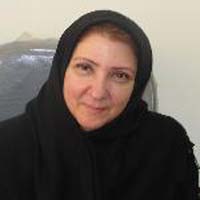Queer Aesthetics; From Identity Politics to Queer Politics as Equality-Based Politics
Author(s):
Article Type:
Research/Original Article (دارای رتبه معتبر)
Abstract:
This article tries to show the queer aspect of Jacques Rancière's methodology in his political theory. For Rancière, the political is an aesthetic act that changes the distribution of the sensible in the police order and how to face the world. Police order is a corporal and spatial order that creates particular ways of thinking, speaking, seeing, and visibility through the distribution of the sensible by the bodies. The aesthetic side of political action deals with redistributing this order due to expanding the boundaries of senses. Then, based on the triple regimes of Rancière's art, a triple model of body regimes in gender studies is presented to show how the queer body as an aesthetic one, under the concept of the body without organs, approaches the political subject/body in Rancière's view. To comprehend the queer side of Rancière's theory and the political dimension of Judith Butler's theory examine the idea of performativity. Subsequently, to analyze politics of identity/difference and queer politics, Rancière's thoughts compare with Axel Honneth's theory. To clarify the link between Rancière's theories and queer politics, the affect theory and distribution of emotions and their function on/between bodies is referred to, as the political economy of emotions.
Keywords:
Language:
Persian
Published:
Iranian Journal of Anthropology Research, Volume:12 Issue: 1, 2022
Pages:
83 to 118
https://magiran.com/p2544653
سامانه نویسندگان
مقالات دیگری از این نویسنده (گان)
-
Studying Armenian carpets from the perspective of art anthropology
Mohammad Afrough *, Bita Bahramighasr, Emilia Enercissians
Journal of Industrial Arts, -
بازنمایی نشانه شناسانه تحولات اجتماعی در فیلم های سینمایی دهه 80 و 90 ایران؛ نشانه نشاسی فیلم های جدایی نادر از سیمین و ابد و یک روز
رامین بیات*،
نشریه پژوهش در هنر و علوم انسانی، خرداد 1401


